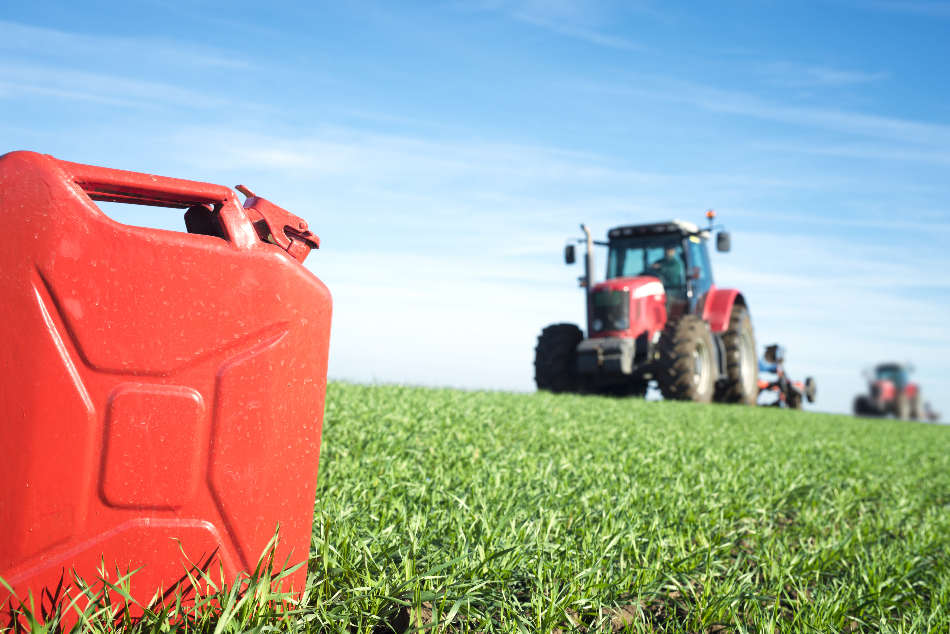
Image Credit: Aleksander Malivuk/Shutterstock.com
Recently, global warming and ways of preventing the effect of pollution in our environment, have been the most important topics of discussion. To reduce greenhouse gas emissions, many countries have adopted the use of biofuels.
As motor vehicles are a major source of air pollution, alternative fuels are used to reduce carbon dioxide and other vehicle emissions. However, there is a growing debate that focuses on how much these alternative biofuels are helping in the reduction of environmental pollution.
What is Biofuel?
Biofuel is a fuel made from a biological source such as vegetable oil, which is sulfur-free in its pure form, minimizing particulate pollution when used. Biofuels are obtained from many sources, for example, ethanol is obtained from corn, sugarcane, soy, etc. New technologies are enabling biofuel production from non-edible substances such as wood and other plant waste material. Unlike gasoline, pure ethanol is non-toxic and biodegradable, quickly breaking down into harmless substances if spilled.
Are Biofuels as Green as Primarily Considered?
Research has revealed that the main advantage in the use of biofuels is that it has zero net emittance of carbon dioxide, i.e., when biofuel is combusted by automobiles, they release carbon dioxide equal to the carbon that the plants absorb while growing. However, other factors that are associated with the production of biofuels require energy.
Biofuel production also requires fertilizers for the plant to grow, tractors, transportation, and energy to convert the plants to liquid fuels. Furthermore, usage of food crops or arable land for biofuel production might lead to deforestation if farms are expanded elsewhere, to make up for lost food production. Increased production of biofuels also contributes to the competition with food production, as a result of which, the price of food has increased. Large conversions of rainforests and tropical grasslands for feedstocks results in the loss of biodiversity and an increase in greenhouse gas emissions.
Some biofuels were found to be even worse for the environment. For example, willow or eucalyptus trees, especially used as fast-growing sources of renewable fuelwood, emit high levels of the chemical isoprene. Isoprene forms toxic ozone when mixed with other air pollutants in sunlight. Therefore, biofuels should not be used indiscriminately, and their production should be carried out using “smart” technologies.
Smart Biofuel Production Reduces Greenhouse Gas Emission
Some researchers remain positive that smart biofuel production could help meet energy demand without causing any adverse effects on people or the environment. In a Science Policy Forum, David Tilman, a Professor of Ecology in the University of California (Santa Barbara), and colleagues stated that biofuels can be produced in substantial quantities at low environmental cost provided they are derived from feedstocks that have lower greenhouse gas emissions than conventional energy sources, and it will also not compete with food production.
They further highlight several potential feedstocks, including perennial plants grown on degraded and abandoned agricultural land, crop residues, sustainably harvested wood, and forest residues, double crops, and mixed cropping systems to maximize production between and during harvest cycles; and use of municipal and industrial waste to produce biofuels. Further, responding to criticisms that farmlands are used to grow biofuel, which in turn is leading to an increase in the price of food, many European governments have imposed a limit on crop-based biofuels - such as from maize or sugar - to five percent of transport fuels.
Biofuels reduce jet engine pollution
A study by NASA has confirmed that biofuels reduce jet engine pollution. Using biofuels, the power jet engines reduce particle emissions in their exhaust by as much as 50 to 70 percent. The use of biofuel was also found to have an improvement for both airline economics and the environment more generally. The findings are the result of a cooperative international research program led by NASA and involving agencies from Germany and Canada and are detailed in a study published in the journal Nature. More than 150,000 flights have used biofuel, but the amount of aviation biofuel produced in 2018 accounted for less than 0.1 percent of total consumption. In shipping, too, the adoption of biofuel is at levels far below the 2030 targets set by the International Energy Agency.
The U.S. government is supporting efforts to produce ethanol with methods requiring less energy than conventional fermentation. It promotes the utilization of cellulosic biomass, which demands less cultivation, fertilizer, and pesticides. Brazil had established its ethanol fuel program 40 years ago, and today is considered to have the world's first sustainable biofuels economy, with almost all cars burning some elements of biofuel. This shows that we are on the right path, but a lot remains to be done.
Sources and Further Reading
Disclaimer: The views expressed here are those of the author expressed in their private capacity and do not necessarily represent the views of AZoM.com Limited T/A AZoNetwork the owner and operator of this website. This disclaimer forms part of the Terms and conditions of use of this website.